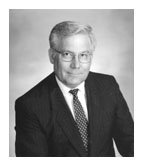What would happen if all of the education players met in the room to attack the problems of education in Washington State? We are about to find out. The P-20 Council is chaired by Governor Gregoire and has 13 other members, including representatives of early learning, K-12 education, community colleges and four year colleges and universities. This group will attempt to put address the "seamless" portion of "world-class, learner focused, seamless education," the tag line of Washington Learns. The council is to make sure the ten-year goals of Washington Learns are accomplished. Five of those goals tie directly to the work of principals of the Evergreen State. Goals, member information and meeting times and agendas can be found
here.THREE CHALLENGESOne challenge for this group will be to have the frank conversations that need to happen to address issues in an open forum. It is hard to imagine colleges and universities representatives being pushed on the number of math, science, special education and ELL teachers their institutions are producing each year in a public meeting and reporting back how they are going to address the issue by the next meeting.
That leads to another challenge the committee will have in providing timely responses to the issues that are raised. The performance review process the P-20 Council is modeled after Government Management Accountability and Performance,
GMAP calls for agencies to accountable for results quickly. The example used dealt with the response time of
DSHS in responding to calls about child abuse and neglect. All regions in the state dramatically improved the 24 hour response rate from just over 73% to over 94 % in less than two years. In education to increase the number of math teachers will take years, not quarters to accomplish.
The final
challenge and one the governor spoke to was getting the measurements right. In fact, she said that measurement of the success of the education system is the big question that has to be addressed before anything else can be done. A draft list of 18 proposed indicators included at least 6 related directly to K-12 education. They are:
- 3rd graders reading at 3rd grade level
- 8th graders participating in Navigation 101-type programs
- 10th grade WASL results
- High school graduation rates
- College attendance within 1, 2, and 3 years(s) of high school graduation
- Rate of remedial course-taking by college students
A major focus of the first meeting, as well as the next meeting, December 21, was English Language Learners. As part of her report to the council, Judy Hartmann, K-12 policy advisor to the governor made reference to AWSP's involvement in the ELL task force. Gary Kipp, executive director of the principals association served as a part of that group. She also made highlighted the leadership camp for Hispanic students sponsored by AWSP.
Whether the P-20 Council creates a seamless education system in Washington state will be determined over time, but AWSP will continue to follow this new work of some of the education leaders in Washington.

